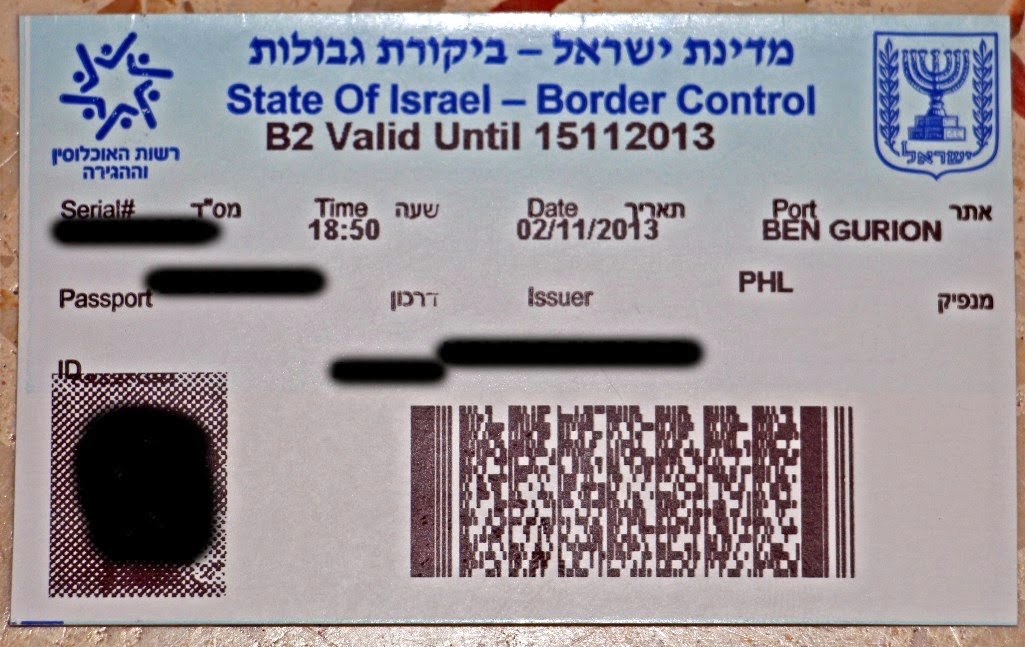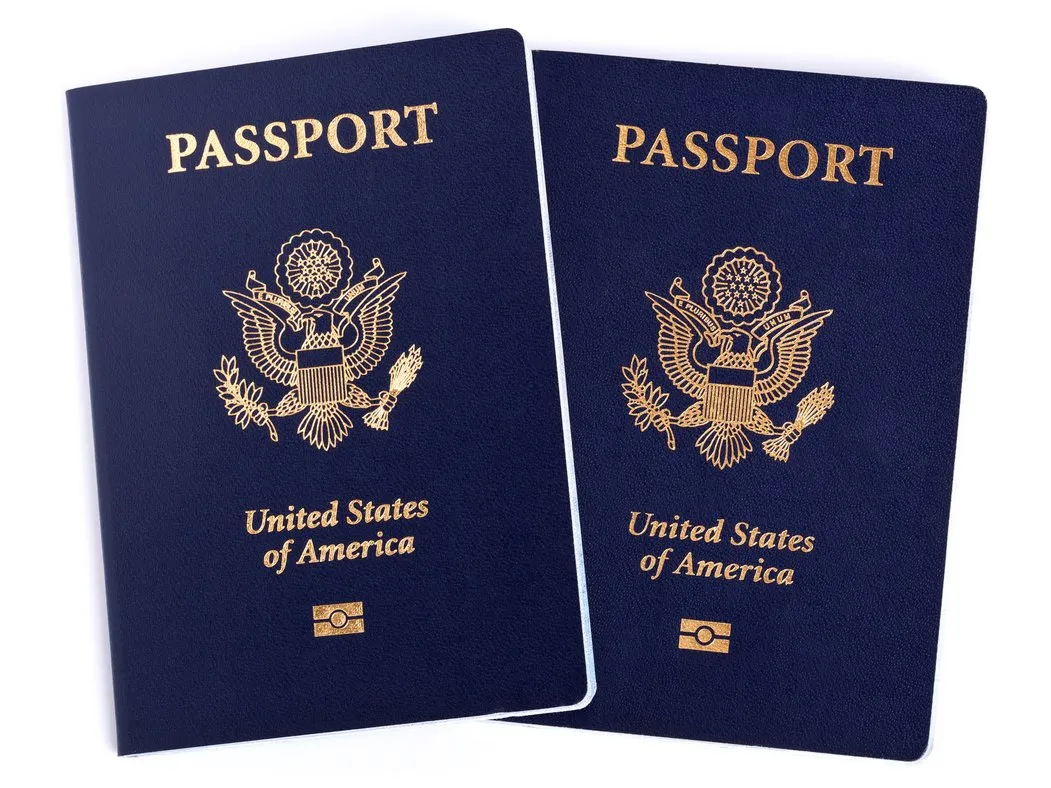As a foreigner visiting the West Bank for the first time, you may be anxious about obtaining the proper visa for Palestine. Many individuals want to study Arabic in Palestine. Others want to volunteer or conduct an internship in the West Bank for more than three months. One may be unsure how to get a visa to remain in Palestine for a year or more. This article may be of interest to individuals who want to discover how to apply for a visa to enter Palestine.
Table of Contents
Direct Flights To Palestine
Unfortunately, Palestine (Gaza and the West Bank) has been without an operational airport since 2000. The Yasser Arafat International Airport in Gaza, adjacent to the Egyptian border, opened on November 24, 1998. However, it barely lasted two years, until October 8, 2000, when the Second Intifada (the Arabic term for “revolt” in English) began. The Israeli army demolished the Gaza International Airport, as it was known at the time. As a result, there are no direct flights to the West Bank of Palestine.
Visiting Palestine Requires An Israeli Visa
Moreover, since Israeli authorities govern Palestine, it has no visa policy. This implies that to reside lawfully in Palestine, you will need only an Israeli visa. You may get it at the airport rather than applying from home. The Israeli immigration officer will generally ask you a few questions and check your passport during passport control.
The whole procedure may take a few minutes, but the authorities may request you to wait longer. This is not a cause for concern; it is regular practice. Some travelers acquire their visas quickly, while the authorities subject others to more in-depth interrogation before allowing them to enter. We want to reassure you that this is a common occurrence. You should stay cool and comfortable while cooperating with Israeli border security personnel.
| Airports closest to the West Bank, Palestine | Ben Gurion International Airport (Tel Aviv, Israel) Ramon Airport (Eilat, Israel) Queen Alia International Airport (Amman, Jordan) |
| Visa duration | 90 Days |
| Israeli stamp on your passport | No (you are given a separate piece of paper) |
| Visa type | Tourist visa |
| Visa valid for | Palestine (The West Bank) and Israel |
Will You Get An Israeli Stamp On Your Passport?
The first step of your journey in Palestine begins with Israeli passport control. It is now impossible to travel in Palestine without passing through Israeli borders. In the past, Israel stamped passports upon arrival and exit. This could be a concern as there were certain repercussions for having an Israeli stamp on your passport. However, Israel no longer stamps passports. Instead, they will issue you a separate credit-card-sized piece of paper as your tourist visa. This serves as your permission to visit Israel and Palestine.
The visa that internationals receive upon arrival to Israel is all they’ll need to travel to or around Palestine and Israel.

Israeli Visa On A Separate Piece Of Paper
Israel is aware of the issues their passport stamp could cause for foreign tourists. In January 2013, Israel began issuing visa slips on separate pieces of paper with entrance and departure records and 2D barcodes. While they introduced this process in phases, Israeli border control facilities no longer use rubber stamps, even if visitors want an Israeli stamp.
When you arrive at Tel Aviv’s Ben Gurion Airport (TLV), your passport will not be stamped. In all situations, Israel has ceased stamping passports upon arrival and exit. You will only have to worry about an Egyptian or Jordanian stamp if you are crossing an Egypt-Israel or Jordan-Israel land border.
Is It A Problem To Have A Passport Stamp That Indicates Entry To Israel?
Many volunteers and students are aware of the difficulties that come with having evidence of visiting Israel on their passports. Some people have heard that having an Israeli passport stamp may drastically restrict their travel possibilities. Or make them a target for detention or deportation from certain Muslim or Arab countries.
Several countries have a boycott of Israel to varying degrees. One facet is that participating countries would refuse Israeli passport holders entry into their countries. Some will refuse entrance to anybody having an Israeli stamp on their passport or proof of previous visits to the State of Israel. You will likely be refused entry to countries if your passport contains evidence of having visited Israel. These countries include Afghanistan, Iraq, Kuwait, Lebanon, Libya, Pakistan, Syria, and Yemen. You may also be denied entry to Iran. However, recent reports indicate you can visit Iran as long as your visit to Israel was more than six months ago.
Several other countries including Sudan and Saudi Arabia previously denied entry to anyone with evidence of visiting Israel in their passport. However, this is no longer the case.
How To Keep Your Passport Free Of Evidence Of Entering/Exiting Israel
It is important to note that while Israel no longer stamps passports, Egyptian and Jordanian authorities will in most cases stamp your passport upon arrival and exit. This will only be a concern for you if you are crossing via land from Jordan or Egypt. If you fly into or out of Egypt or Jordan, then there is no problem.
An exit or arrival stamp from the Egyptian land border crossing at Taba or from a Jordanian land crossing will serve as evidence that you have visited Israel. The Jordanian land crossing can include the Allenby Bridge, the Jordan River Crossing, or the Wadi Araba Crossing. Even if you manage to get the Jordanian or Egyptian immigration officer not to stamp your passport, having only an entry or exit stamp for Egypt or Jordan can raise suspicions. To avoid this issue altogether, fly into and out of Ben Gurion International Airport in Tel Aviv. This will leave no evidence in your passport of ever having been to Israel. If you are unable to do that, getting a new or second passport is the next best option.
In Case You Need A New Passport
Visitors to the West Bank (and Israel) are now given a separate visa slip on arrival. They do not need to worry about their future travel plans.
However, if one finds oneself with a stamp from an Egyptian or Jordanian border with Israel, there is a pretty simple solution. For a fee, most people can receive a new passport from their government. They can even get an emergency one from their country’s embassy if travel plans necessitate it. Some nations allow citizens to hold two separate passports. This includes countries like Austria, Canada, Finland, France, Germany, Ireland, The Netherlands, New Zealand, Poland, Portugal, Russia, South Africa, Spain, Sweden, Ukraine, the UK, and the USA. This means one could simply keep one passport for traveling to Israel. Then, one can have another for traveling to countries like Saudi Arabia or Lebanon.

Traveling For More Than 3 Months: Is It Possible For Me To Get A Student Visa To Study In Palestine?
If you want to study in the West Bank, you must get a visa to enter Palestine from Israel. Obtaining one seems to be very difficult, if not impossible. The ideal option for students is to enter the West Bank on a tourist visa obtained upon arrival at the airport in Tel Aviv. It will last for three months (90 days). If you want 6 months, you can usually leave Israel for a few days before returning to secure a new tourist visa for another 3 months.
According to our experience, unless you work for a non-governmental or humanitarian group, you cannot remain in the West Bank for more than six months.
A Visitor’s Perspective
Tara, from the UK, visited Palestine in February 2020 and traveled through most of the West Bank. She says: “I had previously traveled to several Middle Eastern countries. I was anxious that stamps from places such as Jordan and the UAE might negatively affect my chance of being accepted upon my arrival at Ben Gurion. Also, I was keen not to receive an Israeli visa stamp in my passport in case this meant that I would not be able to visit other Arab countries in the future.
I need not have worried as there was no problem at all. I did not have my passport stamped. Instead, I was given the Israeli visa on a blue slip of paper, as were all the other group members traveling with me. I was granted entry by an Israeli border official after answering two simple questions. The first one was about where I would be staying and the second asked about my job title.
The return journey elicited more in-depth questioning. This included why I visited Jordan, who I knew there when I last spoke to them, and what about. But I answered all the questions calmly and truthfully and was allowed to go on my way. I kept my passport and visa slip with me at all times during my trip to Palestine. It was often necessary to show both of these documents at the various checkpoints. There were never any problems for me in gaining access to anywhere in the West Bank.”
Visa Exemption Agreement
Please visit this website to verify whether or not your native country participates in a visa exemption agreement (Tourists to Israel).
To Summarise
Obtaining a tourist visa to Palestine, particularly the West Bank should not be difficult. Please don’t throw your visa away! Keep your visa and passport in a secure location at all times, as authorities may request to see them at Israeli checkpoints.
You will also need to produce your visa upon departure from Ben Gurion Airport in Tel Aviv, Israel. The worst that might happen is a delay at the airport for some time. Relax and take use of this opportunity to reflect on the experiences, new friends, and adventures that you had in Palestine!

